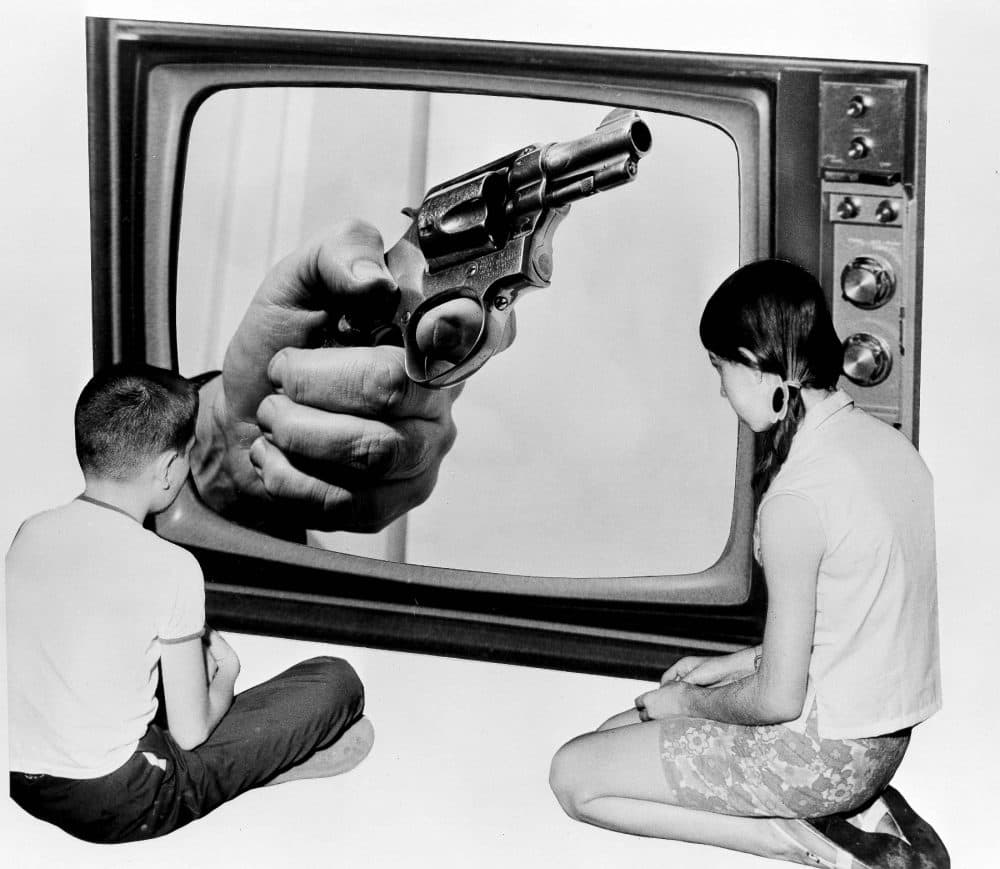Advertisement
Investing In A Gun-Free America By Divesting From Gun And Ammo Stocks

As happens every few months in America, a horrific mass shooting has underscored a tragic paradox in our republic. Although a vast majority of our citizenry supports sensible gun control measures — in particular, bans on assault weapons and selling guns to those on the no-fly list — Republican lawmakers remain beholden to gun lobby.
Today, senators will vote on a number of these measures, but few political observers expect them to pass. Even if they did, the GOP-controlled House is even more unlikely to vote them into law.
The only political solutions to this problem are to oppose any candidate who stands in the way of gun control and to advocate for gun control measures at the state and local level.
But there is a more direct means of making your voice heard: Divest from the gun industry.
...more and more Americans are -- usually unwittingly -- invested in guns and ammunition.
After all, the so-called gun lobby, along with the National Rifle Association, are driven not just by a slavish devotion to the Second Amendment, but by money.
Gun sales are expected to reach record levels this year. If you want a truly sickening example of capitalism in action, consider this: On the morning after 49 innocent people were gunned down in an Orlando nightclub, gun sales surged. Retailers happily report that this happens every time there’s a mass shooting. Not surprisingly, Smith & Wesson and Sturm Ruger stock prices both soared.
The half dozen major gun manufacturers in this country are making billions. They may be impervious to public polls, but they’re not impervious to investors.
After the slaughter of 20 6- and 7-year-old children and six adults in Newtown, Connecticut, city pension funds in Philadelphia and Chicago sold off their firearms investments, as did the California State Teachers Retirement System, the largest pension fund in the country.
Still, gun companies continue to grow in value. And this sad fact, combined with the proliferation of 401(k) plans and Individual Retirement Accounts, means that more and more Americans are — usually unwittingly — invested in companies that manufacture and profit from the sale of guns and ammunition.
There’s a decent chance that a gun maker resides in your very own portfolio, in particular if your 401 is managed by Fidelity, Vanguard or virtually any other mutual fund group. If you want to know if you’re invested in guns, there are plenty of websites that will tell you. GoodbyeGunStocks.com and the Campaign2Unload are two good places to start. You can also divest from retailers such as Wal-Mart and Dick’s Sporting Goods, which sell guns and ammunition.
You can take even more direct action by boycotting such retailers. After all, if you oppose the proliferation of guns, it probably doesn’t make sense to give your money to Wal-Mart, a company rightfully known as America’s Gun King for the industry-dominating millions of dollars in guns and ammo sales it racks up annually.
You can take other sorts of direct action, as well. If you’re a regular donor to your college, for instance, you can write a letter to the fundraising office informing them that you will not be contributing until they divest from gun companies. You can also investigate how your city or county invests your tax dollars.
I don’t suggest these measures as any kind of replacement for political action. Those distressed by gun violence should continue to pressure elected officials at the federal, state and local levels. But it’s worth remembering that profits are the ultimate goal of the gun industry.
...it’s worth remembering that profits are the ultimate goal of the gun industry.
If you need some motivation to begin your own personal divestment campaign, consider this story:
Way back in 1992, William Ruger, a co-founder of Sturm Ruger, observed that “no honest man needs more than 10 rounds in any gun. I never meant for simple civilians to have my 20- or 30-round mags or my folding stock.” With the support of folks like Ronald Reagan, Congress banned high-capacity magazines and assault rifles in 1994.
But 10 years later, Congress let that ban expire, amid pressure from the NRA, to which Sturm Ruger contributed millions.
Ruger himself was dead by then, and the Connecticut-based company resumed selling 30-round magazines to civilians. Sturm Ruger’s new CEO, Michael Fifer, personally lobbied state lawmakers against banning high-capacity mags in 2011. The following year, he presented NRA executives with a check for $1.25 million, which represented one dollar for every Sturm Ruger gun purchased that year.
Eight months later, Adam Lanza walked into Sandy Hook Elementary School, in Newtown, with a semi-automatic rifle and a 30-round magazine. He murdered 20 elementary school children and six educators.
Sturm Ruger’s headquarters were just 27 or so miles away.
